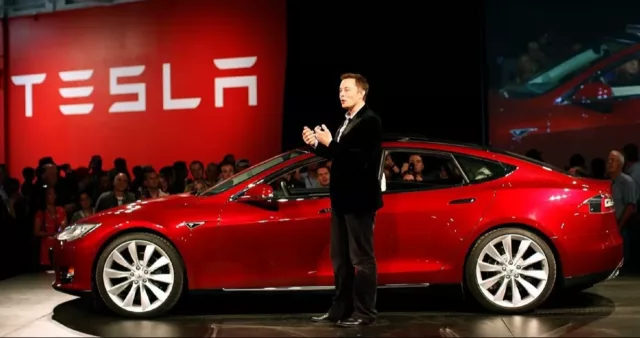
China EV Prices Plunge as Tesla (NASDAQ: TSLA) Faces Down BYD and Xpeng in Brutal Price War
The Chinese electric vehicle (EV) market is experiencing intense price competition as Tesla (TSLA) faces off with domestic rivals BYD and Xpeng. A price war between the electric vehicle giants has led to significant price cuts across the market, raising concerns about Tesla’s declining market share in China, one of the largest EV markets globally.
- EV Price Decline: EV prices in China dropped 5.8% in January, while traditional fuel car prices fell by 4.6%.
- Tesla’s Struggle: Tesla’s market share in China is facing increased pressure from aggressive pricing strategies by local competitors.
Tesla Battles Domestic Competition
The price war in China was reignited when BYD, the Chinese automaker, slashed the price of its Sealion 05 hybrid SUV by 11.5% in December 2023. BYD further escalated the situation by cutting prices on almost all of its models by 5–20% in February 2024. The company has also pushed its suppliers to reduce prices by 10%, adding fuel to the competitive fire.
- BYD’s Aggressive Pricing: BYD cut prices by as much as 20% on several models in early 2024.
- Tesla’s Response: In response to these cuts, Tesla reduced the price of its Model Y last year and has since introduced additional incentives, such as offering rebates on car insurance and interest-free loans for buyers of its Shanghai-made Model 3 sedans.
Xpeng’s Response
Not to be left behind, Xpeng also joined the fray by offering interest-free loans on some of its EV models in a bid to retain customers. This price war has led to a significant reduction in vehicle prices, with 227 models seeing price cuts in China during 2023 alone, according to data from the China Passenger Car Association.
- Xpeng’s Strategy: Xpeng introduced interest-free loan offers for select EV models, intensifying competition.
- Market Impact: The price cuts across the board have raised the stakes for all players in China’s EV market.
Tesla’s Struggling Sales in China
Despite Tesla’s aggressive pricing strategy, data reveals that Tesla’s sales in China have taken a hit. In January 2024, Tesla sold 63,238 units of its China-made EVs, a sharp decline of 11.5% compared to the 71,447 units sold in the same month a year prior. This decrease in sales comes at a time when BYD posted a significant 48% increase in car sales in China from the previous year, although this was down 42% from December 2023’s sales figures.
- Tesla’s January Sales: Tesla sold 63,238 units, down 11.5% year-over-year.
- BYD’s Growth: BYD saw a 48% increase in January car sales, but a 42% decline compared to December.
Is Tesla Winning the Battle?
The fierce price competition has placed Tesla in a challenging position, as it faces more aggressive moves from local manufacturers. The price war is likely to continue, putting further pressure on Tesla to lower its prices or increase incentives to stay competitive. While Tesla remains a major player in the global EV market, its dominance in China may be at risk as domestic manufacturers such as BYD and Xpeng intensify their efforts.
Important Story Highlights
- January EV Price Decline: EV prices in China fell by 5.8%, while traditional car prices dropped by 4.6%.
- Tesla’s Sales: Tesla’s January sales in China dropped by 11.5% compared to the previous year, with 63,238 units sold.
- BYD’s Sales Growth: BYD saw a 48% increase in January car sales, but this was down from December’s numbers.
- BYD’s Price Cuts: BYD slashed prices on multiple models by 5-20% in early 2024.
- Xpeng’s Loan Offers: Xpeng offered interest-free loans to entice customers, increasing competition.
Tesla’s strategy to counter local competition in China may be necessary for its continued growth, but the intensifying price war will require swift and effective responses to maintain market share.









